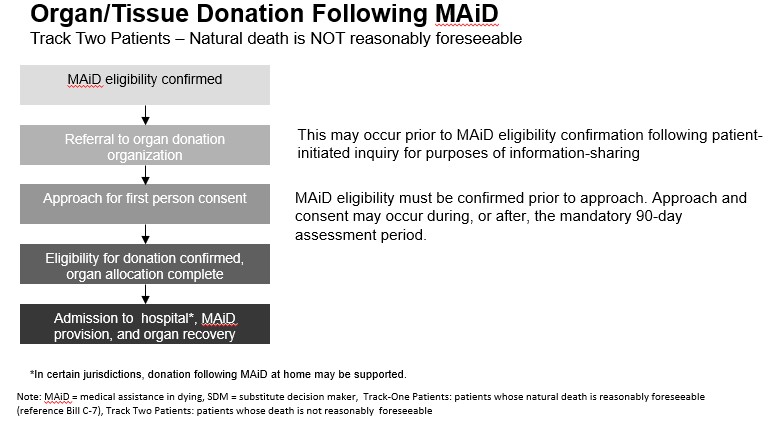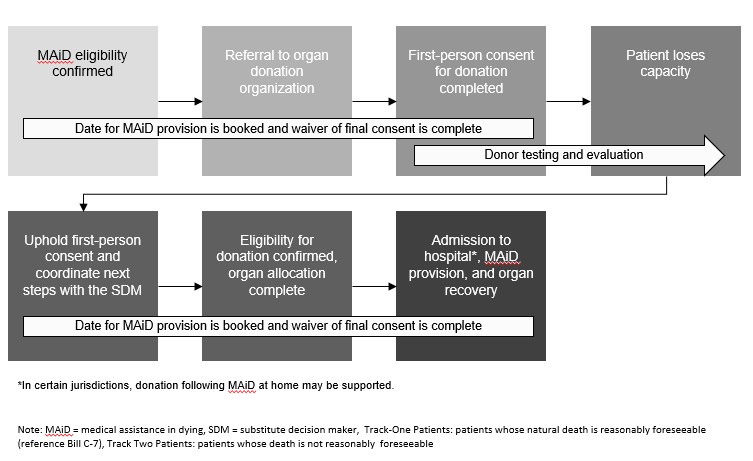Deceased organ and tissue donation after medical assistance in dying and other conscious and competent donors: 2023 updated guidance for policy
Kim Wiebe1, Lindsay Wilson2, Ken Lotherington2, Caitlin Mills2, Sam Shemie2,3, James Downar4,5.
1Medical Assistance in Dying, Shared Health Manitoba, Winnipeg, MB, Canada; 2Organ and Tissue DOnation and Transplant, Canadian Blood Services , Ottawa, ON, Canada; 3Department of Pediatrics , McGill University , Montreal , QC, Canada; 4Division of Palliative Care, University of Ottawa, Ottawa, ON, Canada; 5Department of Critical Care, The Ottawa Hospital , Ottawa, ON, Canada
Canadian Blood Services.
Driven by patient requests (like those of Dr. Shelly Sarwal in the film, Her Last Project), Canadian Blood Services assembled a group of experts to examine the 2021, updated Canadian legislation for medical assistance in dying (MAiD) and its impact on organ and tissue donation. The outcome of this work provides an update to the 2019 guidance for policy for clinicians, organ donation organizations, end-of-life care experts, MAiD providers, and policymakers for donation following MAiD in Canada.
Methods: CBS assembled a diverse panel of experts from critical care, organ and tissue donation, healthcare administration, MAiD, bioethics, law, and research. Two patients who had been approved for MAiD and two family members of patients who donated organs following MAiD also participated. In a series of three online meetings, participants addressed a variety of donation and MAiD related topics in small and large groups. Recommendations were generated using a modified version of nominal group technique, a structured variation of small-group discussion to reach consensus.
Results: Forum participants informed the development of 8 new and 2 updated recommendations for donation following MAiD in Canada. Three themes emerged from the forums as priority considerations in the updated guidelines: 1. Strong support for upholding first person consent for MAiD and organ donation for Track 1 patients who have completed a waiver of final consent. 2. Track 2 patients may be approached for formal consent for organ donation during the mandatory 90-day assessment period if already deemed eligible for MAiD. 3. Organ donation organizations should develop policy regarding directed donation following MAiD.
Conclusion: This updated guidance supports the development of policies and practices for donation following MAiD in Canada following the introduction of MAiD legislation in 2016 and an update to legislation in 2021. The recommendations serve as a framework for clinicians to navigate the medical, legal, and ethical challenges that arise when supporting patients requesting donation following MAiD.

